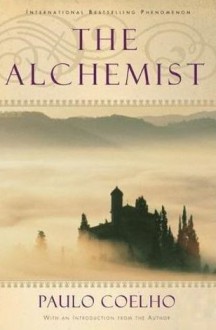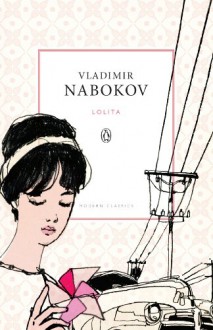
Santiago is an Andalusian shepherd boy who's on his way to see a girl he once met and fell a little in love with. Before he gets there, however, some stuff happens that I can only vaguely recall. Something about a fortune teller, who tells him that a dream he had about the pyramids in Egypt will lead him to a great treasure. A mysterious man who turns out to be something more convinces Santiago to abandon his ordinary and comfortable life as a shepherd and begin his quest - the pursuit of his Personal Legend.
I'm making a conscious effort to get through more books in my collection that I figure I'll probably be okay with either selling or donating when I'm done. This seemed like a good candidate - I picked up a copy ages ago at a conference, and while it seemed vaguely interesting, it wasn't the sort of thing I'd normally read. When I saw that my library owned the audiobook version via Overdrive, I figured that'd be the perfect way to get through it. I'd listen to it, use my paper copy to help me with any name spellings or other details in my review, and then offload it.
Audiobook was probably the best way to go. Jeremy Irons' voice was wonderful to listen to and made the four hours of listening time almost bearable.
That said, I hated this book. Hated it. Had it actually been a fantasy adventure about a boy on a quest for treasure, I might have liked it a bit more, but in reality this was more a self-help book in story form.
Its basic message was this: if you listen to your heart, follow your dreams, and go after your goals with everything you've got, there's nothing you can't accomplish. The entire universe will assist you. The only thing that can stop you is fear of failure.
It's a cruel message. It says "If you're not managing to succeed at this thing you're trying so hard to accomplish, it means that the problem is you. You're somehow still not doing enough, not trying enough, not wanting it enough." It's such an insidious lie, and it made me angry that Coelho had chosen to build an entire world around it.
Santiago really could accomplish anything he wanted to, just by putting his whole heart and soul into his quest. Any other boy might have starved to death after selling all his sheep to go after a treasure he'd seen in a dream, but not Santiago. Every experience he had and every person he met was just another lesson or sign that would lead him to his ultimate goal, his Personal Legend. Thieves left him penniless and theoretically hungry, but he was never truly in danger of starving as long as he kept his goal in sight. At one point he was beaten, but the pain might as well have been a light bruising for all the attention Santiago paid it. Everything always came back to his stupid Personal Legend, the only thing that seemed to leave any sort of lasting impact on him, except maybe Fatima. But more on Fatima later.
In the real world, a person can put everything they have into their goal, pursue their dreams with all their heart and soul, do everything right...and still not succeed. This is not an indicator that they didn't work hard enough or want their dream badly enough, as The Alchemist would suggest. Maybe they didn't have a rich friend or family member who could give them an interest-free loan. Maybe they got sick and suddenly had their health and medical bills to worry about. Maybe they had a family to support and didn't want to be complete jerks towards their loved ones (families didn't seem to factor into this whole Personal Legend thing at all - basically, if they really loved you and supported you, they'd take care of themselves until you accomplished your Personal Legend).
Which brings me back to Fatima, the young woman of the desert Santiago fell in love with (no relation to the young woman he was initially kind of in love with but utterly forgot later on). Her Personal Legend, if I remember correctly, was Santiago. All she had to do was wait in the desert for him. That's it. Why did Santiago's Personal Legend involve a multi-year quest that he had to actively participate in, while Fatima's just required her to exist and be pretty and unmarried? And then, when Santiago left to pursue his Personal Legend, she had to sit and patiently wait for him to come back, however long that might take. They had only spoken a few times and definitely weren't married, so she was basically just waiting for a near-stranger. It was Coelho's version of a soulmate romance. Man, I wish I'd been reading an actual soulmate romance novel rather than this book.
All in all, I don't recommend this, not even with Jeremy Irons' wonderful narration.
(Original review posted on A Library Girl's Familiar Diversions.)

 Log in with Facebook
Log in with Facebook 










